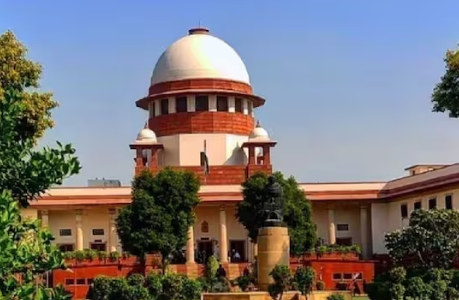Supreme Court Upholds Assam Citizenship Act Validity
The Supreme Court of India upheld the constitutional validity of Section 6A of the Citizenship Act, of 1955. This ruling was delivered by a Constitution Bench with a 4:1 majority. Justice Surya Kant authored the majority opinion, while Justice Pardiwala dissented. The decision is for Assam’s citizenship framework.
About Section 6A
Section 6A was introduced through the Assam Accord, signed on August 15, 1985. This agreement aimed to resolve issues arising from the influx of migrants from East Pakistan (now Bangladesh) into Assam. The cut-off date for citizenship under this section is March 25, 1971. This date marks the beginning of the Bangladesh Liberation War, which led to a mass exodus of people fleeing to India. According to Section 6A:
- Migrants who entered Assam before March 25, 1971, can obtain Indian citizenship.
- Those who arrived after this date are considered foreigners and can be deported.
- Individuals of Indian origin who entered Assam before January 1, 1966, are granted citizenship.
- Migrants who arrived between January 1, 1966, and March 24, 1971, receive full citizenship rights except voting rights for ten years.
Reasons for the Challenge
The ruling was challenged by various petitioners, including NGOs. They argued that Section 6A discriminates against migrants and violates Article 14, which guarantees equality. Concerns were raised about its inconsistency with Articles 6 and 7, which govern citizenship for Partition-era migrations. Petitioners claimed that Section 6A alters Assam’s demographic balance, infringing on the cultural rights of indigenous Assamese people as protected under Article 29. They argued this situation constitutes both external aggression and internal disturbance under Article 355, obligating the Union government to protect Assam.
The Majority’s Rationale
The majority opinion, delivered by Justices Kant and Chandrachud, upheld Section 6A. They brought into light Assam’s unique historical context, justifying the differentiated treatment of its migrants. The judges asserted that the provision does not breach Article 14, as it balances humanitarian concerns with the state’s cultural and economic pressures. They clarified that Section 6A complements Articles 6 and 7, targeting individuals not covered by these provisions. The Chief Justice noted that Article 11 grants Parliament the power to create citizenship laws, allowing for specific conditions. The judges interpreted Article 29 as supporting cultural coexistence rather than exclusion. Justice Kant urged for better implementation of Section 6A, particularly regarding the identification and deportation of illegal immigrants.
Justice Pardiwala’s Dissent
Justice Pardiwala dissented, declaring Section 6A unconstitutional. He argued that, while it may have been appropriate at its inception, it has become inconsistent with constitutional principles due to its failure to curb illegal migration. He pointed out the absence of a sunset clause, which could incentivize ongoing illegal immigration. Pardiwala criticized the reliance on state intervention for detecting foreigners, arguing it diverges from the Citizenship Act’s intent. He believed the provision undermines the efficient identification of illegal migrants.
Potential Ramifications
The ruling reinforces the March 25, 1971, cut-off date, which is central to the National Register of Citizens (NRC) established in 2019. The NRC process identified 19 lakh residents in Assam as potential non-citizens. Furthermore, this ruling could affect ongoing debates about the Citizenship Amendment Act (CAA) of 2019. The CAA sets a different cut-off date of December 31, 2014, for non-Muslim migrants from Bangladesh, Afghanistan, and Pakistan, leading to accusations of discrimination against Bengali Hindus who migrated after 1971.
Month: Current Affairs - October, 2024
Category: Legal & Constitution Current Affairs







